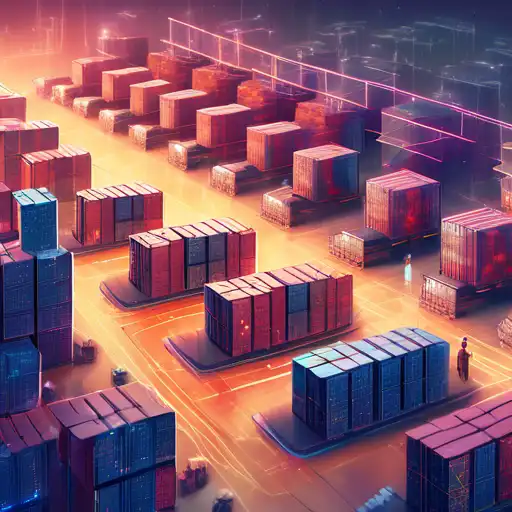The Transformative Power of Blockchain in Modern Supply Chains
In the digital age, blockchain technology is emerging as a revolutionary force in transforming supply chains across industries. By offering unparalleled transparency, security, and efficiency, blockchain is setting new standards for how goods are tracked and transactions are recorded. This article delves into the myriad ways blockchain is reshaping supply chains, ensuring businesses can meet the demands of the 21st century.
Enhanced Transparency and Traceability
One of the most significant advantages of blockchain in supply chains is its ability to provide complete transparency and traceability. Every transaction or movement of goods is recorded on a decentralized ledger, accessible to all parties involved. This means businesses can track the journey of a product from manufacturer to consumer with unprecedented accuracy, reducing the risk of fraud and counterfeit goods.
Improved Security
Blockchain's inherent security features are a game-changer for supply chains. The technology's decentralized nature makes it nearly impossible for hackers to alter or delete transaction records. This level of security is crucial in industries where the authenticity and integrity of products are paramount, such as pharmaceuticals and luxury goods.
Streamlined Operations
By automating many of the processes involved in supply chain management, blockchain technology can significantly reduce administrative burdens and operational costs. Smart contracts, for example, automatically execute transactions when predefined conditions are met, eliminating the need for intermediaries and speeding up the entire process.
Real-World Applications
Several industries are already reaping the benefits of blockchain in their supply chains. For instance, the food industry is using blockchain to track the provenance of products, ensuring food safety and quality. Similarly, the automotive sector is leveraging the technology to manage parts and inventory more efficiently.
Challenges and Considerations
Despite its potential, the adoption of blockchain in supply chains is not without challenges. Issues such as scalability, interoperability, and regulatory compliance must be addressed to fully realize the technology's benefits. However, with ongoing advancements and increasing industry collaboration, these hurdles are gradually being overcome.
As blockchain technology continues to evolve, its impact on supply chains is expected to grow exponentially. Businesses that embrace this innovation will not only enhance their operational efficiency but also gain a competitive edge in the global market. The future of supply chain management is here, and it's powered by blockchain.
For more insights into how technology is transforming industries, check out our articles on Digital Transformation in Manufacturing and The Future of Retail Technology.
